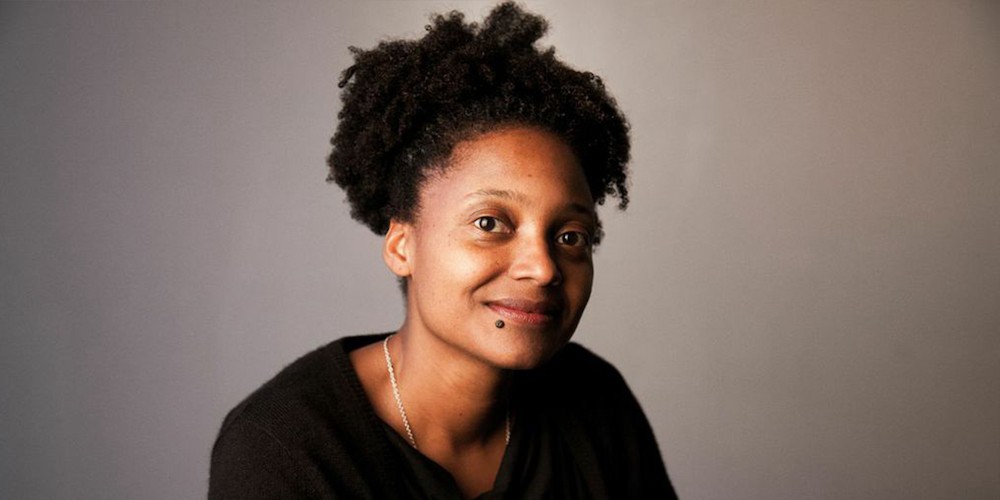Alum Tracy K. Smith '97 Named Poet Laureate
The Library of Congress has named Columbia School of Arts Alumna, Tracy K Smith ‘97 its new poet laureate, the nation’s highest honor in poetry. Smith is the 22nd poet to take on the position, which dates to 1937, and has been held by some of the country’s most revered poets, among them Rita Dove, Louise Glück, Billy Collins, Philip Levine, W. S. Merwin, Charles Simic and most recently, Juan Felipe Herrera. Each poet laureate serves for at least one year and is responsible for raising national awareness and appreciation of poetry.
Carla Hayden, the Librarian of Congress, said that she was drawn to Smith’s work because of the way her poems blended personal observations and experiences with weightier, universal themes.
“It gives me great pleasure to appoint Tracy K. Smith, a poet of searching,” said Hayden in a press release. “Her work travels the world and takes on its voices; brings history and memory to life; calls on the power of literature as well as science, religion, and pop culture. With directness and deftness, she contends with the heavens or plumbs our inner depths—all to better understand what makes us human.”
According to the New York Times, “Ms. Smith said she planned to use the position to be a literary evangelist of sorts, by visiting small towns and rural areas to hold poetry events.”
Each poet approaches the role with a different focus. According to Poets & Writers, “Robert Pinsky, who served as poet laureate from 1997 to 2000, launched the Favorite Poem Project, through which more than eighteen thousand Americans shared their favorite poems. Several laureates have focused more on bringing poetry into the classroom: Billy Collins curated 180 poems for high school teachers to share with their students every day in the school year as part of the Poetry 180 project, while Kay Ryan strengthened poetry’s presence in community colleges through a national contest and videoconference. Other laureates have opted to raise awareness poetry by collaborating with the media, such as Natasha Trethewey with her Where Poetry Lives video series with PBS NewsHour, and Ted Kooser with his weekly newspaper column, American Life in Poetry.”
Smith is the first poet laureate appointed under the Trump administration. She told the Times, however, “she doesn’t plan to use her position as poet laureate to advocate social causes. Instead, she aims to be an advocate for the medium itself and to instill the same awe she felt when she read Dickinson’s “I’m Nobody! Who Are You?” as a girl.”
If there’s anyone who can remind us of the power of poetry, it’s Smith. In 2015, she said in an interview with Yale Literary Magazine that, “Poems activate and affirm our sense of being individuals, of having feelings, of having been affected powerfully by the events and people that touch us.”
Smith, forty-five, was born in Massachusetts and grew up in Fairfield, Calif., the youngest of five children. Her father worked as an engineer at a nearby Air Force base. Her mother was a teacher, and she died of cancer when Smith was just out of college. Smith graduated from Harvard with a degree in English and Afro-American studies, and her MFA in poetry is from Columbia. She published her first collection, The Body’s Question, in 2003.
Smith is now a professor and the director of the creative writing program at Princeton University, and she resides in Princeton with her husband, Raphael Allison, and their three children. She has written three poetry collections, including the Pulitzer Prize–winning Life on Mars (Graywolf, 2011), and a memoir, Ordinary Light (Knopf, 2015).
“As someone who has been sustained by poems and poets, I understand the powerful and necessary role poetry can play in sustaining a rich inner life and fostering a mindful, empathic and resourceful culture,” said Smith in the announcement. “I am eager to share the good news of poetry with readers and future-readers across this marvelously diverse country.”
Alongside her poetry, Smith has been working on a libretto for an opera composed by Gregory Spears, about the legacy of slavery in the South.
This week, her poem, "Wade in the Water," from her upcoming collection is published alongside an audio version of the poem read by Smith herself in The New Yorker.
